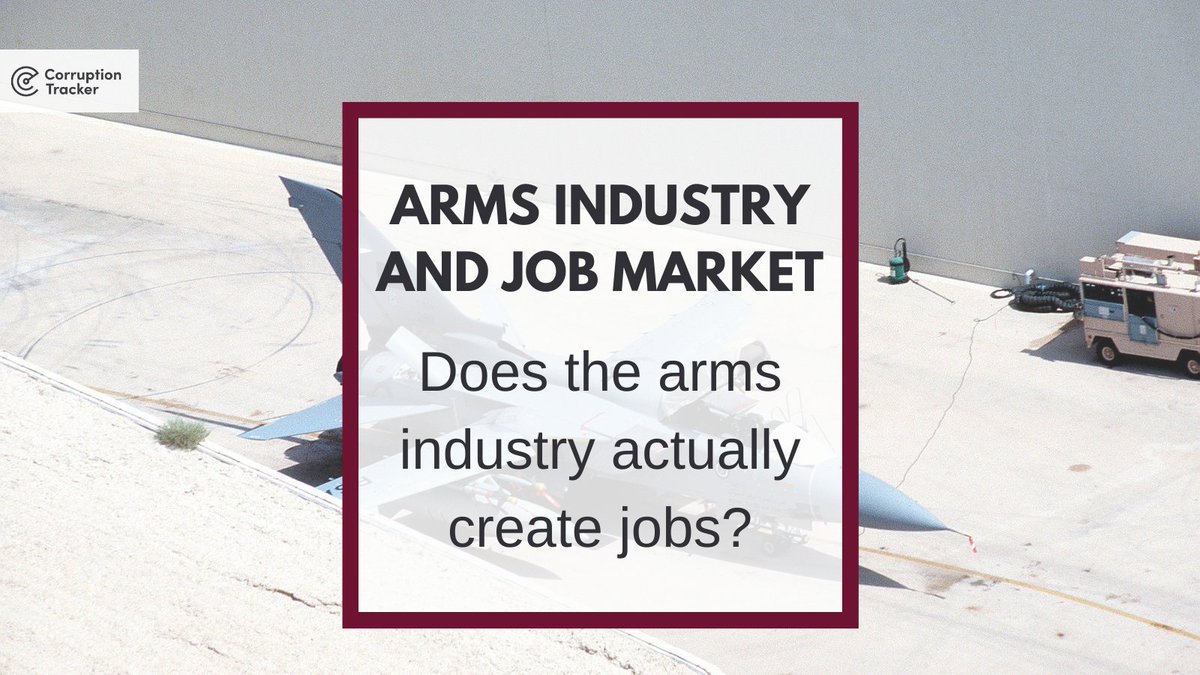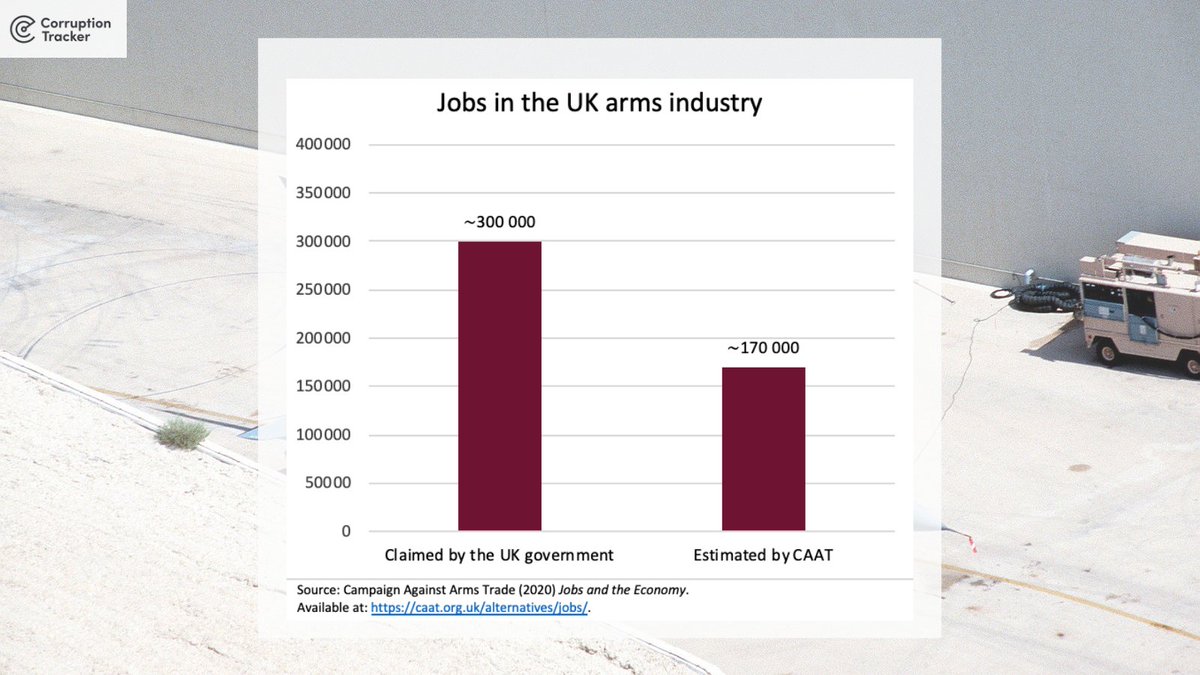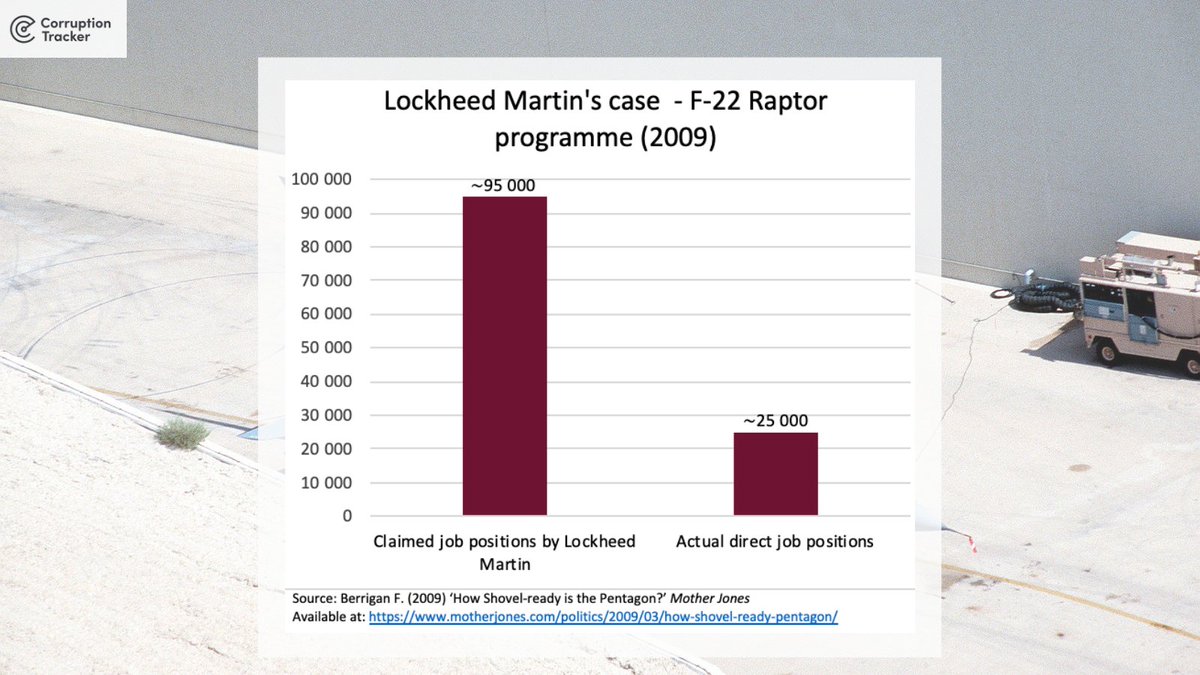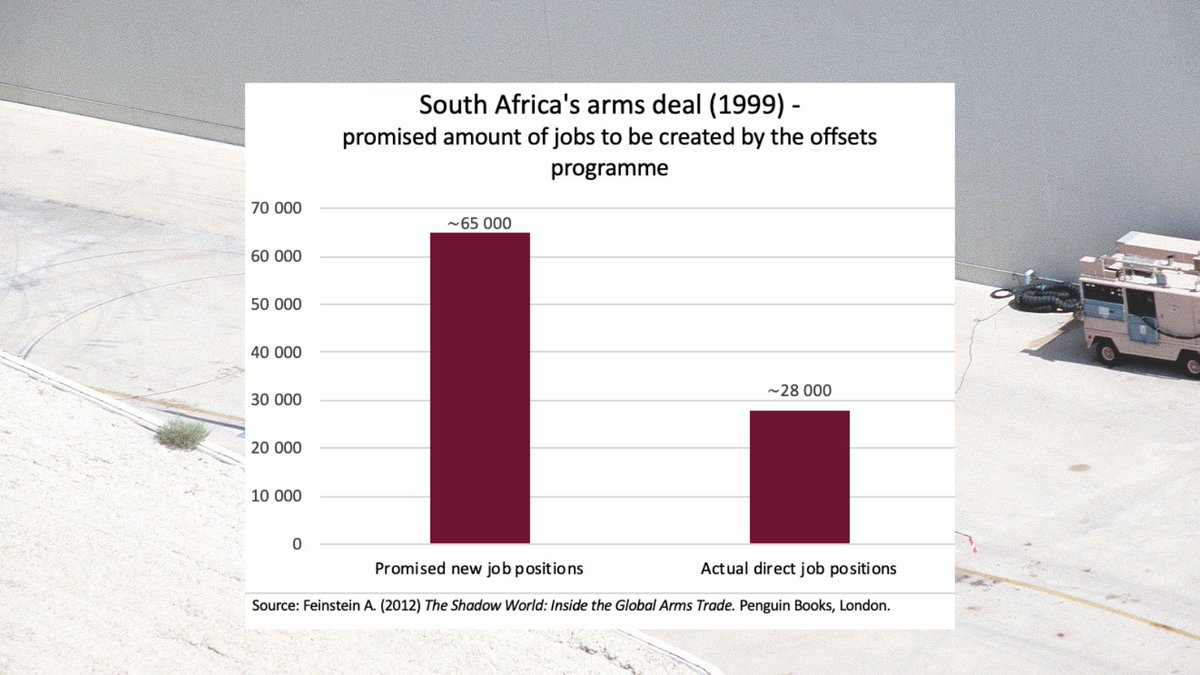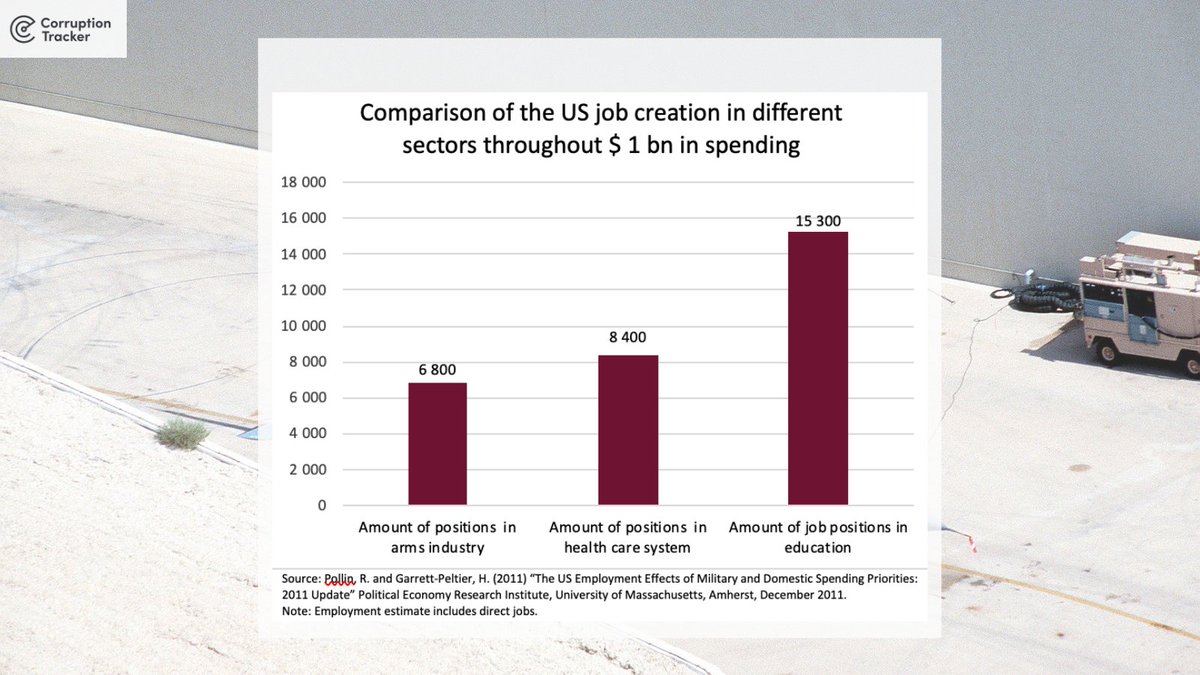When it comes to justifying arms sales, one of the greatest arguments used by its supporters that the industry is a significant contributor to the greater national economy, particularly by creating job positions. However, the evidence shows this to be highly misleading. (1/6)
It is often claimed by the UK government and arms companies that the arms industry provides at least 300000 jobs for people in the UK. Nonetheless, according to the @Caatuk estimation, the number of jobs in this industry is as low as 170000. (2/6)
Lockheed Martin claimed that the F-22 programme is a meaningful addition in ensuring the safety of communities & would create 95000 new jobs. It turned out that there were only 25000 job positions directly related to the construction process within this programme. (3/6)
South Africa’s arms deal: Upon the announcement of the deal, a promise was made that throughout the offset program, more than 65000 jobs will be created. In 2010, the Department of Trade and Industry concluded that in reality, the detail only directly created 28000 jobs. (4/6)
Not only is this an absurdly small amount considering the cost of the deal itself (find more information in our previous post), but also the money could have been invested into other sectors within the country which, at the time, was going through the HIV/AIDS epidemic. (5/6)

 Read on Twitter
Read on Twitter